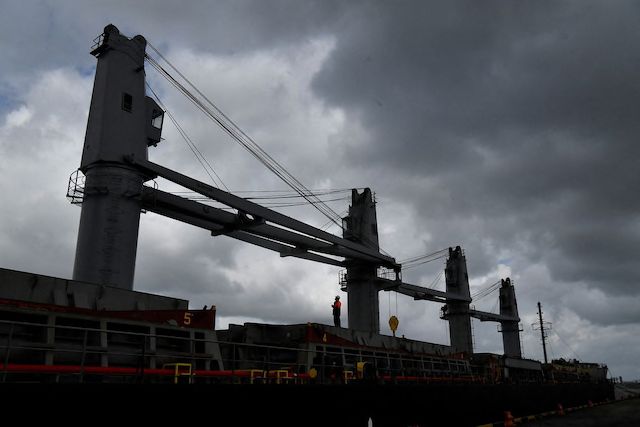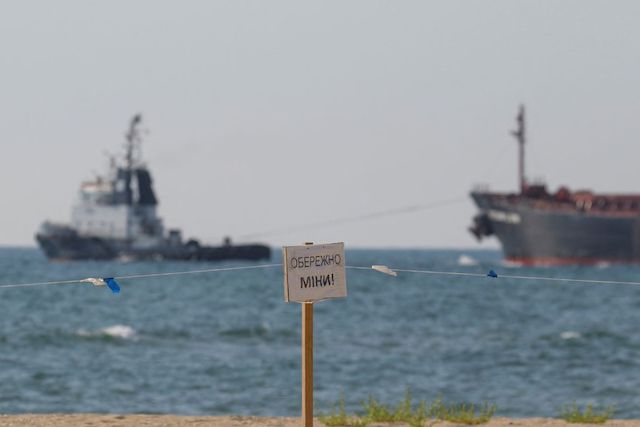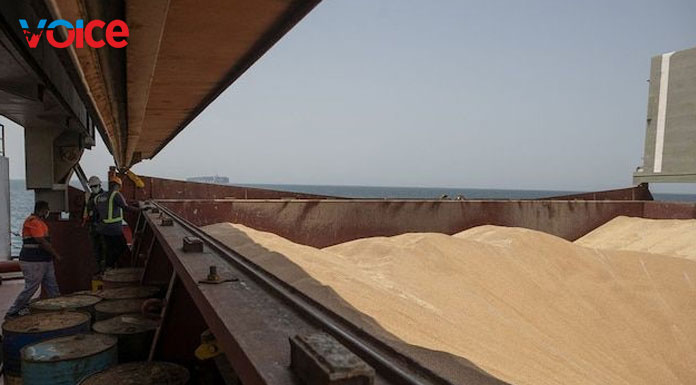Too few ships are arriving in Ukraine to quickly clear mountains of grain built up over months of war despite a U.N.-backed sea corridor, threatening to drive up global food prices and leave the country’s cash-strapped farmers struggling to plant crops.
President Vladimir Putin on Wednesday triggered fears that Russia could withdraw support for the sea corridor after he accused Kyiv of using it to export to the European Union and Turkey rather than poor nations that most need the food, particularly in Africa.
Advertisement · Scroll to continue
Even if the agreement holds, the dangers of sending ships into the heavily mined Black Sea, along with a lack of large vessels and the exclusion of a major port, means volumes transported are well below Ukraine’s goal of doubling farm exports to at least 6 million tonnes by October.

“For the moment, we do not send our ships to Ukrainian ports because we don’t believe it is safe,” Alexander Saverys, chief executive of Belgian headquartered shipping group CMB, which shipped from Ukraine prior to the war, told Reuters.
“The situation on the ground is still very volatile and there is a clear danger to our seafarers’ lives. There is also a real risk of being stuck in port.”
The sea corridor was facilitated by the United Nations and Turkey in July. According to the latest data from the Joint Coordination Centre (JCC) in Istanbul, which oversees the deal, some 2 million tonnes of grain – mainly corn – has been exported since the first ship sailed on Aug 1.
At the current rate of exports, it would take around six months to ship the rest of the grain left over from last year’s harvest through the three ports included in the pact – Odesa, Chornomorsk and Pivdennyi – with the help of rail exports, according to Reuters’ calculations.
By then, another mountain of grain will have built up from the current harvest, including 20 million tonnes of wheat and Ukraine’s corn crop which is expected to total around 30 million tonnes.
Unable to sell, farmers do not have the money to invest in their fields, meaning winter wheat planting is on track to be about a third below last year, said Denys Marchuk, deputy chair of the Ukrainian Agrarian Council.
That could extend a global food crisis which the U.N. initiative had sought to mitigate. Food prices – which spiked after Russia’s Feb. 24 invasion – eased following the agreement, but Ukraine’s wheat has still not been reaching its traditional clients in Africa at anywhere near normal volumes.
Dmitry Skornyakov, chief executive of Ukraine farm company HarvEast, said the sea corridor was “not game changing” in part because prices being paid for grain in Ukraine were not high enough to make massive exports immediately viable.
As a result, he said, his company was cutting its planted wheat area and drilling no barley or rye this year.
“We will definitely see less wheat and if we wait until spring and the situation remains as it is we will see a dramatic decrease in corn,” he said.
SHIPS TOO SMALL
Ukraine’s farming minister Mykola Solsky told Reuters last week that agricultural exports could rise to 6 million-6.5 million tonnes in October, double the volume seen in July.
Ports in Ukraine, a top 5 global grain exporter before the war, used to ship about 5-6 million tonnes of grain per month, according to analysis from logistics platform project44.
“Ukraine would require mammoth shipping capacity to make up for lost time,” said Josh Brazil, vice-president for global supply chain insights at project44. Reaching previous shipment levels would require four 50,000 tonnes vessels every day, he said.
Many of the vessels departing Ukraine are much smaller.
Data from maritime and commodities data platform Shipfix, shows an average cargo size of around 20,000 tonnes.
Alex Stuart-Grumbar, of Shipfix, said successful journeys made under the agreement so far could provide momentum for shipments to accelerate. However, at current cargo sizes, approximately a thousand voyages would be required clear the backlog, he said.

Larger ships carrying over 60,000 tonnes of grains, known as panamaxes, which would have traded Black Sea routes, have been redeployed to other regions including North and South America. It would take weeks to reposition them as grain export seasons there are underway, shipping industry sources say, with a big crop in Brazil tying up many vessels.
“We are, at the moment, unable as yet to position any of our assets in the Black Sea and therefore are unable to look at this business,” Khalid Hashim, managing director of leading Thai listed dry bulk shipping company Precious Shipping, told Reuters.
(Source Reuters)











